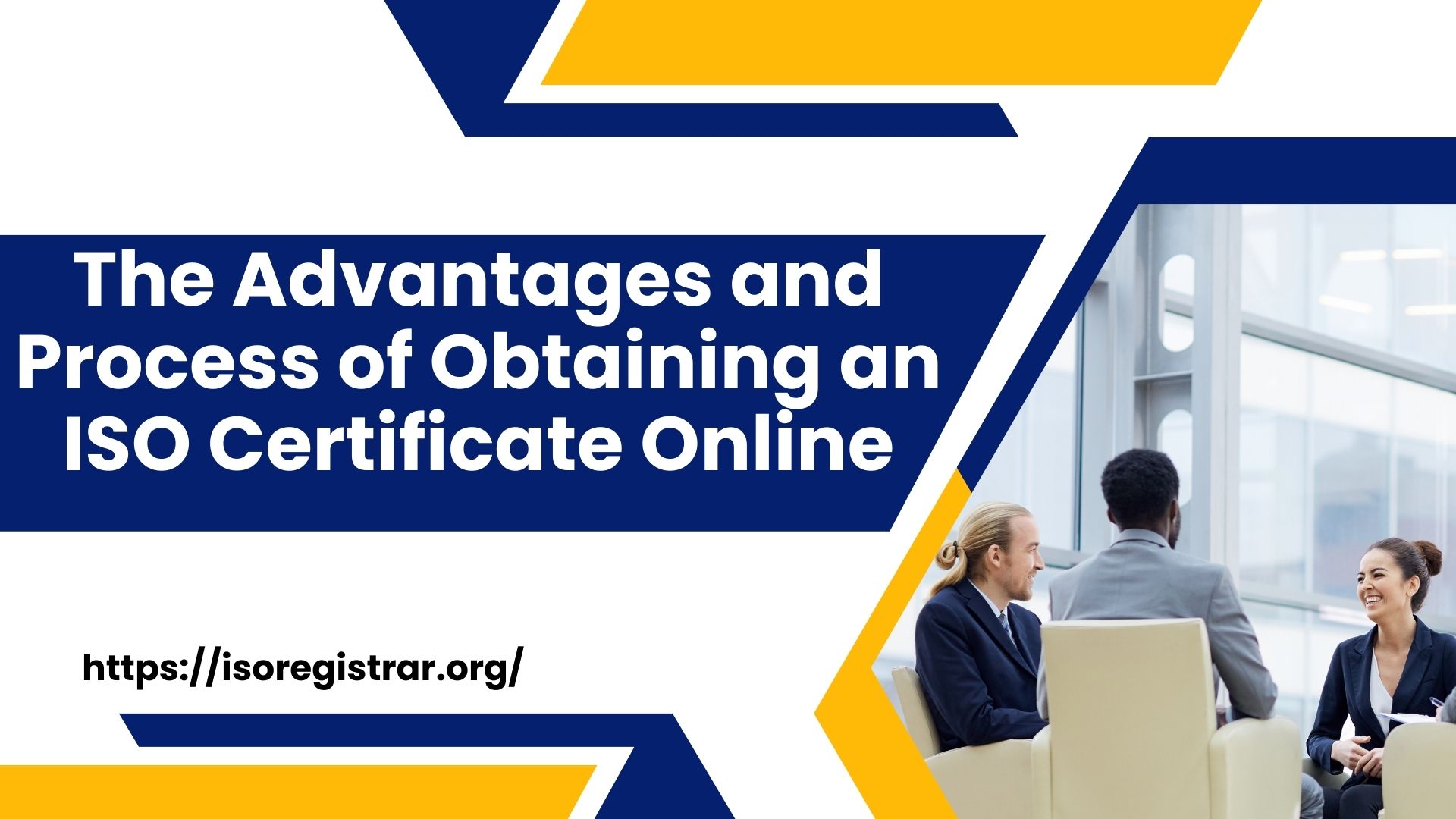Introduction
In today’s competitive business landscape, companies strive to demonstrate their commitment to quality, efficiency, and customer satisfaction. One of the most effective ways to achieve this is by obtaining an ISO (International Organization for Standardization) certificate. The ISO certification serves as a globally recognized hallmark of excellence, attesting that an organization complies with stringent international standards in various aspects of its operations. With the advent of modern technology, businesses now have the convenience of obtaining an ISO certificate online. In this comprehensive article, we will explore the significance of ISO certification, the benefits it offers, and the step-by-step process of obtaining it online.
Section 1: Understanding ISO Certification
What is ISO Certification?
ISO certification is an international standard that sets specific criteria for various aspects of a company’s operations, such as quality management, environmental management, information security, and more. It provides a framework for businesses to streamline their processes, enhance efficiency, and ensure customer satisfaction.
Importance of ISO Certification
Enhanced Credibility: An ISO certification signals to stakeholders that a company is dedicated to maintaining high-quality standards in its products or services.
Increased Customer Trust: ISO certification instills confidence in customers, as they are assured of receiving consistent, high-quality products or services.
Expanded Market Opportunities: Many businesses, particularly in the B2B sector, require their partners or suppliers to have ISO certification, opening doors to new opportunities.
Continuous Improvement: ISO standards encourage organizations to adopt a culture of continuous improvement, driving innovation and efficiency.
Section 2: Advantages of Obtaining ISO Certificate Online
Convenience and Accessibility
The online ISO certification process allows businesses to access resources, documentation, and expert guidance remotely. This accessibility is especially beneficial for companies located in remote areas or with limited resources.
Time and Cost Savings
Traditional ISO certification processes involve extensive paperwork and on-site audits, which can be time-consuming and expensive. With the online approach, businesses can significantly reduce administrative costs and the time required for the certification process.
Real-Time Progress Tracking
Online platforms often provide tools to monitor and track the progress of certification, allowing businesses to stay informed about the status of their application and address any issues promptly.
Expert Support and Resources
Reputable online certification providers offer expert assistance and resources to help businesses understand the ISO requirements, implement necessary changes, and ensure compliance with standards.
Section 3: The Process of Obtaining ISO Certificate Online
Choose a Reliable Online Certification Body
Selecting a trustworthy and accredited online certification body is crucial. Verify their credibility, customer reviews, and certifications before proceeding.
Determine the Applicable ISO Standard
Identify the ISO standard that aligns with your business goals and objectives. Common ISO standards include ISO 9001 (Quality Management), ISO 14001 (Environmental Management), ISO 27001 (Information Security Management), and more.
Self-Assessment and Gap Analysis
Conduct a comprehensive self-assessment of your organization’s processes, identifying gaps between current practices and ISO requirements. This will help you prioritize improvements.
Implement Necessary Changes
Based on the gap analysis, make the required changes to align your processes with the ISO standards. This may involve updating policies, procedures, and documentation.
Documentation Preparation
Prepare all the necessary documentation, including policies, manuals, procedures, and records, demonstrating compliance with the ISO standard.
Online Audit
An online audit will be conducted by the certification body to evaluate your organization’s adherence to the ISO requirements. This audit may include virtual interviews and document reviews.
Certification Decision
After the audit, the certification body will review the findings and decide whether to grant the ISO certificate. If your organization meets the requirements, you will be awarded the certificate.
Surveillance Audits (Optional)
Some certification bodies conduct periodic surveillance audits to ensure that the certified organization continues to comply with ISO standards.
Suggested Read: ISO 45002:2018 Certificate
Conclusion
Obtaining an ISO certificate online is a strategic step that can elevate a business’s reputation, efficiency, and customer satisfaction. The advantages of this streamlined process, including convenience, cost savings, and real-time tracking, make it an appealing option for companies worldwide. Embracing ISO certification demonstrates a commitment to quality and continuous improvement, positioning organizations for long-term success in today’s competitive market. As businesses evolve, the adoption of ISO standards becomes increasingly essential to drive excellence and thrive in an ever-changing global landscape.



